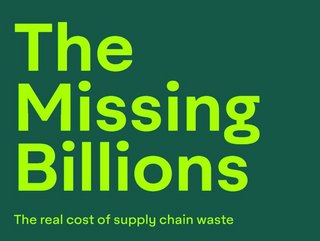Over-production hurting supply chains - Avery Dennison

Over-production and waste are deepening the supply chain crisis and eroding profits already affected by rampant cost inflation, research from a leading Fortune 500 company shows.
The report – The Missing Billions: The Real Cost of Supply Chain Waste is an in-depth report into the state of global supply chains and the issue of waste across the US, UK, France, China and Japan. It has been published by Avery Dennison, a Fortune 500 materials science and digital identification solutions company.
Avery Dennison says up to 3.6% of annual profits are being lost as nearly 8% of stock perishes or is discarded. It says the loss includes 4.3% of stock that spoils in the supply chain before it even reaches the shelf, with a further 3.4% discarded due to over-production. In total, the loss amounts to an estimate US$163.1bn of inventory.
The report covers 318 global firms and finds that although companies are aware of the problem, they are not investing enough to address it.
Respondents say that on average 29% of their organisation’s sustainability impact comes from the supply chain, and yet say just 4.4% of their tech budgets is dedicated to supply chain sustainability improvement.
Nine in ten businesses surveyed also said they are under pressure to become more sustainable, with 60% claiming it as a ‘high’ priority. But respondents are struggling to make headway here, citing barrier to progress that include ‘integrating disparate systems’ and ‘insufficient coordination among internal stakeholders’.
Urgent need for transparency in supply chain
However, 61% of organisations have at least already deployed solutions to track unique items, with a further 34.6% saying they plan to.
Blockchain investment will see the single biggest leap; 97% of companies surveyed plan to invest in this area within five years, compared to 12% today.
And within five years 99% of companies plan to use smart devices – including sensors and drones – with 97% opting for industrial IoT.
Avery Dennison Smartrac Senior VP and General Manager Francisco Meloat says: “Supply chain disruption is leading to a waste crisis, meaning sustainable practices are even more urgent and necessary.
“There is a huge opportunity for organisations to accelerate digital transformation that will help to create longer-term systemic change. The moral and economic case is clear and the study shows the desire from organisations to embrace technological advancements for the benefit of business and the planet.
“Digital triggers such as RFID provide unprecedented end-to-end visibility in a highly efficient and accurate way. Connected products not only shine a light on supply chains but also reveal valuable new information to enable consumers to make better decisions, including transparency and carbon footprint data.”






